10 women busting taboos, fighting stigmas, and creating awareness around mental health
The latest report on the state of mental health in India conducted by NIMHANS states that the country has 150 million individuals suffering from mental illnesses, including depression, anxiety, personality disorders, schizophrenia, and learning disabilities. The World Health Organisation (WHO) has dubbed India the most depressed country (57 million) and the second most anxious country (38 million) in the world. The country lost 31 million healthy years (disability-adjusted life years) in 2013 alone to mental illness, and according to the World Economic Forum and Harvard School of Public Health, the economic impact of mental health will be $1.03 trillion between 2012 and 2030.
The newly introduced National Mental Health Policy bill in the Rajya Sabha promises access to mental healthcare to all by 2020. India is woefully ill-equipped to make good on this promise, with only 3,800 psychiatrists, 898 clinical psychologists, and 1,500 psychiatric nurses.
This requires an all-hands-on-deck approach.
This International Women’s Day, we profile 10 women who have devoted their lives to busting taboos and stigma surrounding mental illness, providing care and rehabilitation, and being vociferous advocates for the rights of the mentally ill, so that they can live a life of dignity and respect.
1. Dr. Lakshmi Vijayakumar, Founder of Sneha, WHO consultant, and researcher
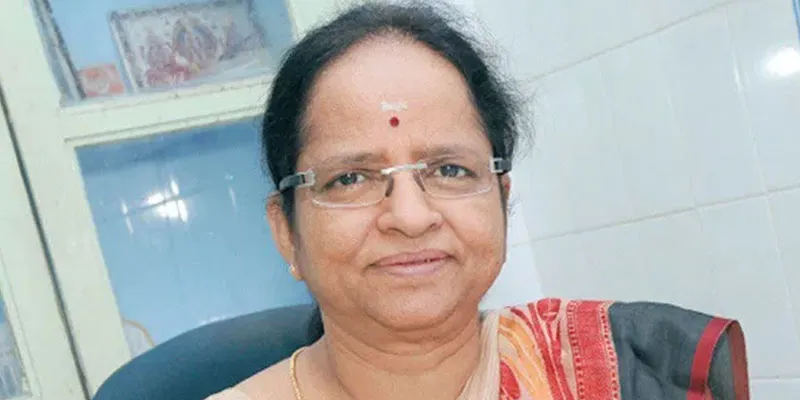
Dr. Lakshmi has been working in the area of mental health for more than four decades as a practising psychiatrist, researcher, consultant, and non-profit founder. One of the main areas of her work has been the creation of more awareness around suicides. This is a grave problem as India accounted for the highest estimated number of suicides in the world in 2012. She has been conducting research in this relatively ill-researched area and coming up with innovative ways to prevent them. She has written many papers on suicide and its causes, and started Sneha, a suicide helpline. Working with the government, Dr. Lakshmi was instrumental in including suicide prevention in the mental health policy bill that was passed in the Rajya Sabha in 2016.
For all her hard work, Dr. Lakshmi has received several awards and recognitions, both domestic and international. She was the first Indian woman psychiatrist to be awarded the prestigious Fellowship of the Royal College of Psychiatrists, United Kingdom. She’s a member of the WHO's Network on suicide research and prevention, and was the Vice President of the International Association for Suicide Prevention for four years, as well as a member of the International Academy of Suicide Research. Dr. Lakshmi is the recipient of the ‘Bharathi Gnananda’, ‘Woman of the Year’ and ‘For the sake’ honours awards in India. Among the many hats she wears is that of an educator - she’s Associate Professor at the University of Melbourne and adjunct professor at University of Griffith.
2. Mambalikalathil Sarada Menon, psychiatrist, social worker, and founder of Schizophrenia Research Foundation (SCARF)
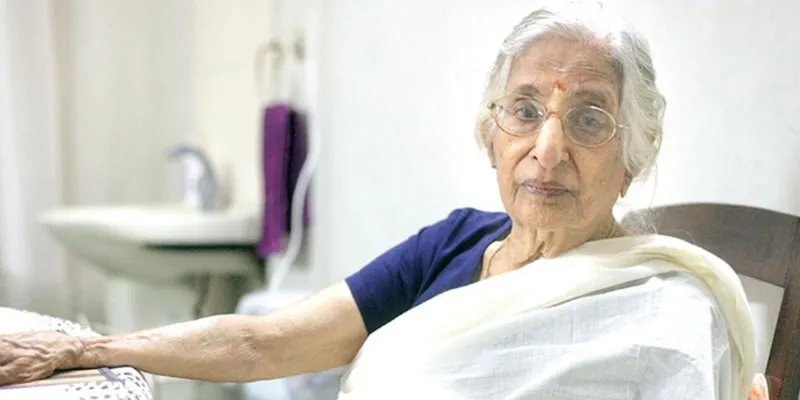
Sarada, who will turn 94 this April, is a true pioneer - she’s India’s first woman psychiatrist. Despite her age, she still mentors young psychiatrists, and also consults with patients daily. She started her career in 1951, and joined the Institute of Mental Health (then known as the Government Mental Hospital) in Kilpauk in 1959, and became its first woman superintendent in 1961.
While at the Institute of Mental Health, she started the Department of Psychiatry, began the out-patient facility, and was instrumental in setting up regional psychiatric centres at the district hospitals in Tamil Nadu. Another initiative of hers that has stood the test of time has been Aasha, a non-profit that is promoted and run by the families of individuals with mental illness.
Perhaps what she is best known for is the founding of the Schizophrenia Research Foundation (SCARF) in 1984, a non-profit, non-governmental organisation, to rehabilitate those suffering from schizophrenia and other mental diseases. SCARF provides temporary shelters, tele-psychiatric therapy in a few districts of Tamil Nadu, rehabilitates patients by providing them with vocational training, and runs a mobile clinic. It is recognised by the WHO as a ‘Collaborating Centre for Mental Health Research and Training’.
She has received numerous awards and recognitions for her efforts, including the Padma Bhushan in 1992 and the Avvaiyyar Award in 2016 from the Tamil Nadu government. Other honors include having been the Vice President of the Chennai chapter of the Red Cross Society, the recipient of the Best Doctor Award from the Government of Tamil Nadu, the Best Employer Award from the Government of India, and a Special Award of the International Association of Psycho-Social Rehabilitation.
3. Ratnaboli Ray, psychologist, activist, and founder of Anjali
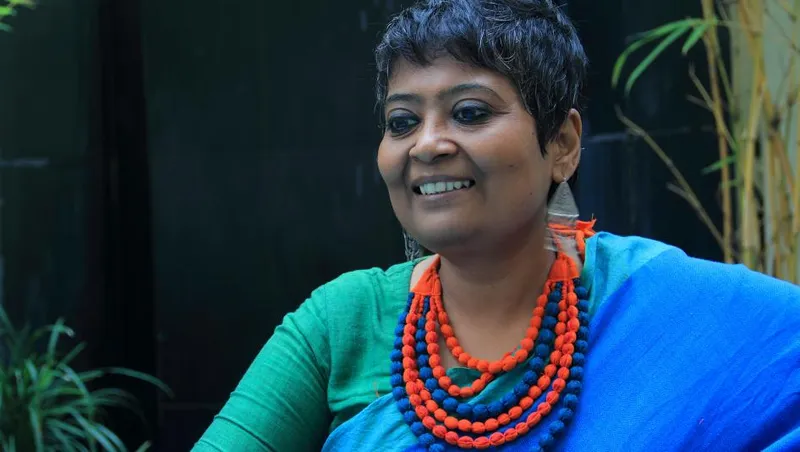
An Ashoka Fellow, Ratnaboli Ray has fought for more than two decades for the rights of those suffering from mental health illnesses. Ray’s first brush with mental illness was witnessing her two aunts locked away and become non-entities because they suffered from schizophrenia. This disturbing incident led her to pursue a degree in psychology and then work in the area of psychosocial disability, with a focus on reintegration and rehabilitation of recovered patients.
After working in a halfway home, she felt the need for systemic reform in mental healthcare and treatment in India, and saw a way towards that goal through partnering with the state machinery. She set up Anjali as a non-profit to offer rehabilitation and reintegration services to those housed in state-run mental hospitals. At present, Anjali works with Pavlov Mental Hospital, Lumbini Park Mental Hospital, and Bahrampur Mental Hospital in West Bengal, adopting a rights-based, participatory, non-coercive approach. The focus is to provide healthcare services and therapies supplementing what’s already available in the government mental hospitals.
Through Anjali, Ray has successfully fought the use of solitary confinement and electroshock therapy without consent.
In 2005, she co-founded the National Alliance for Access to Justice for People with Mental Illness, to ensure that a rights-based framework gets adopted for the treatment of the mentally ill in India. In 2016, Ray started ‘Dhobi Ghar’, an automated laundry in state-run Calcutta Pavlov Hospital, which is run by the patients, with Sparsh Foundation as a technical partner and assistance from The Hans Foundation.
For her efforts, Ray was the recipient of the Human Rights Watch's Alison Des Forges Award in 2016, which celebrates the valour of individuals who put their lives on the line to protect the dignity and rights of others.
4. Reshma Valliappan, artist, filmmaker, activist, and founder of The Red Door

Reshma Valliappan, or Val Resh as she likes to be called, dons many hats, including those of an artist, filmmaker, activist, and anti-medication campaigner. In the Public Service Broadcasting Trust documentary A Drop of Sunshine, based on her real life story of being diagnosed and living with schizophrenia, she talks about dealing with mental illness without medications and exploring alternative natural therapies like exercise, meditation, and spirituality. The documentary won many awards, including the Rajat Kamal (Silver Lotus Award) at the 59th National Film Awards, and won multiple awards at the annual Indian Documentary Producers' Association IDPA 2011.
In her autobiographical account, Fallen, Standing: My Life as a Schizophrenist, Val Resh talks about being diagnosed with schizophrenia at the age of 22, dealing with the effects of the mental illness, surviving suicide attempts, suffering the effects of drugs, exploring alternative methods of non-medicine related therapies, and becoming a mental health campaigner and human rights activist to create awareness around the illness.
Val Resh was featured as one of the faces for feminist human rights organisation CREA's special series on United Against 377, and was also featured on CNN IBN ‘Living It Up’. She is both an Ashoka fellow and an Ink Fellow.
She is also the Founder of The Red Door, a non-profit that leverage social media to talk about mental illness, conducts workshops related to mental health and creativity, and does advocacy and research. Val Resh was the co-winner of the SCARF-Press Institute of India ‘Media for Mental Health’ Award in 2014 for her article 'On Being Normal'. In her speech, she said, “I have never raped, tortured, or abused anyone, and yet, because I am a ‘survivor of psychiatry’, neither the government nor society gives me the rights I deserve.”
5. Minal Lonkar-Kavishwar, psychologist, animal-assisted therapist, and founder of Animal Angels
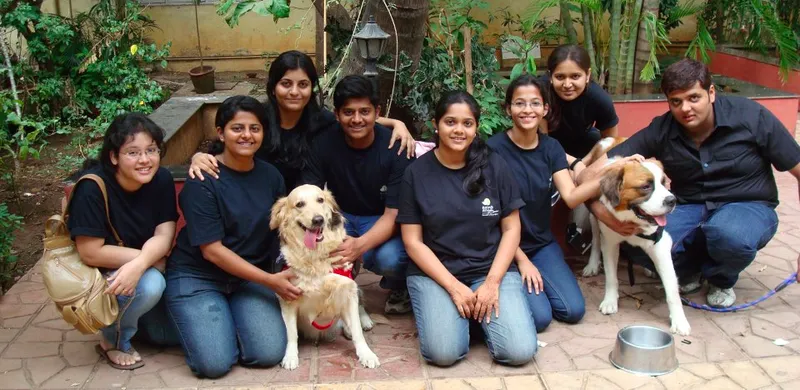
While still young, Minal witnessed how her autistic cousin was unresponsive to conventional therapies, and watched him and his family suffer due to this. After completing a Master’s in Clinical Psychology, during a chance meeting with Dr. Kshitija Koppal, who taught her dog training and canine behaviour, she became aware of animal assisted therapy. Minal became India’s first certified Animal Assisted Therapist from the University of North Texas and Delta Society.
Upon graduating, her first experiment was with TMC’s Jidda Special School, with Kutty, her first trained therapy dog, who was able to bring a smile to the face of a child who could not speak. Minal’s pioneering animal assisted therapy (AAT) combines therapy and the presence of a trained dog to boost the emotional and mental well-being of children and adults, with a focus on facilitating communication and improving empathy.
After initially using animal assisted therapy with adults and children with intellectual disabilities, she has extended it to juvenile delinquents, senior citizens, cancer patients, and those suffering from stress and other mental illnesses like PTSD (post traumatic stress disorder).
The Animal Assisted Education programme developed by Minal has activities around the therapy dog and creates individual goals, like encouraging the child to read out to the dog, or learn languages by speaking to the dog.
Minal has now started an online AAT course, and is working on forming the first regulatory body in India for therapy dogs. She founded Animal Angel Foundation (AAF) in 2006 to train dogs, certify individuals in AAT, and also create awareness about the efficacy of AAT. The foundation is currently working in five cities with over 50 trained therapy dogs.
AAF has trained volunteers and professional therapists, including physiotherapists, psychologists, audio and speech therapists, doctors, and paediatricians. Therapy animals are trained as per international norms, and are registered under the Delta Society.
Minal has worked with the Bombay Psychiatric Society and King Edward Memorial Hospital, Mumbai, to introduce animal assisted therapy as a medium of therapy for post-traumatic/post-disaster stress.
Minal’s articles on the therapy are posted on international websites like Animal Net, Delta Society, Disability India, Pet Thought, and Healing Threshold, among others.
6. Tripura Kashyap, choreographer and movement therapist and project coordinator at Bhoomika Creative Dance Centre

When they were young and listening to music, Tripura’s younger brother, who was in a wheelchair, would move his upper body to his favourite tune and use his hands to bang at his wheelchair, almost falling out of it. When she was getting trained in classical dance at Kalakshetra in Chennai, she observed visually impaired boys who were learning to sing and play the flute move their bodies to the music. Music and dance as therapy was something that resonated with her. This was further cemented after a chance encounter with Grace Valentine, an American dance therapist, and gave Tripura a window into the world of dance movement therapy and its usage to treat those with mental, physical, and emotional issues. This led her to study dance therapy for two years at the Hancock Center for Dance/Movement Therapy in Wisconsin.
After returning to India, she began work as a dance movement therapist at many rehabilitation and treatment centres, halfway homes, hospitals, special schools and de-addiction centres in Bengaluru and other cities. Tripura also conducted several training programmes on dance therapy for special educators, teachers, and therapists. As a researcher, she presents academic papers on dance therapy, dance in education, and contemporary dance theatre at conferences and seminars.
Tripura has also choreographed dances with people with mental and physical disabilities, and has mentored several dancers in education and dance therapy. Along with Mahnoor Yar Khan, a drama therapist, Tripura co-founded Rainbow Inc., a creative arts therapies centre that organises regular workshops and training programmes in dance, drama, music, and visual arts therapy. Realising that creative therapists are disjointed, she has gathered creative therapists under a single banner of the Creative Movement Therapy Association of India.
To explain her journey, and also talk about dance and therapy, Tripura has written My body, My wisdom – A handbook of Creative Dance Therapy’.
7. Monica Kumar, clinical psychologist and founder of Manas Foundation
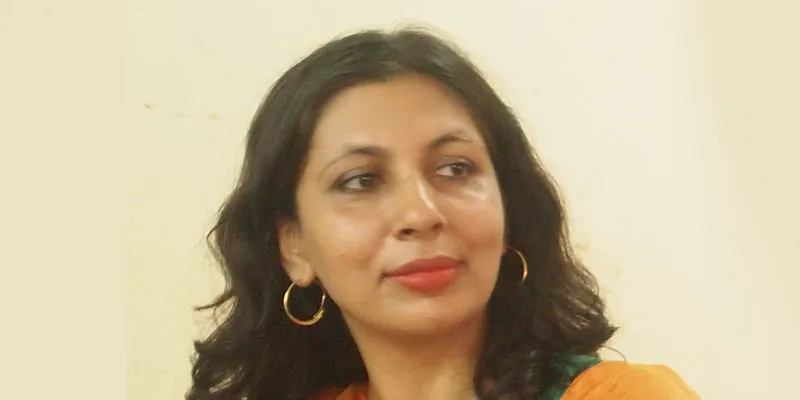
Monica was born into a middle-class family but got an opportunity to attend New Delhi’s best boarding school thanks to a government scholarship. The students there may have come from rich families, but they had similar mental and emotional problems to those of children from lower income groups. In 1991 and 1992, she suffered twin losses, when both her father and sister were killed in accidents. Through the grieving and personal loss, she realised the importance of mental healthcare.
After getting her undergraduate degree in Psychology at Delhi University and an M.Phil in Medical and Social Psychology from the National Institute of Mental Health and Neurosciences, she worked at various hospitals.
Monica envisioned a mental healthcare system that takes treatment outside the confines of hospitals and integrates it into larger public institutions, thereby bringing about a shift in public attitudes. Along with a colleague, Monica moved her clinical practice outside of the medical facility, by starting a counseling centre in her home in 1999. This grew to accommodate a learning centre, a play-based school for children with learning and behaviour issues, and space for workshops.
She founded Manas Foundation in 2000 to extend mental health services to the broader community, specifically focusing on resource-poor people. Since then, Monica has been working to integrate mental health care units in various settings like school structures and custodial care homes. She hopes to do for mental health awareness what large public campaigns have done for HIV/AIDS awareness.
Monica is a recipient of the EdelGive Social Innovation Honour for her work with underprivileged women, using models of psycho-social rehabilitation and care. She serves as a member of the State Child Protection Society on the board of the Department of Women and Child Development (DWCD), Delhi, and is a member of the governing body of the Integrated Child Protection Scheme (ICPS).
8 & 9. Vandana Gopikumar and Vaishnavi Jayakumar, Founders, The Banyan
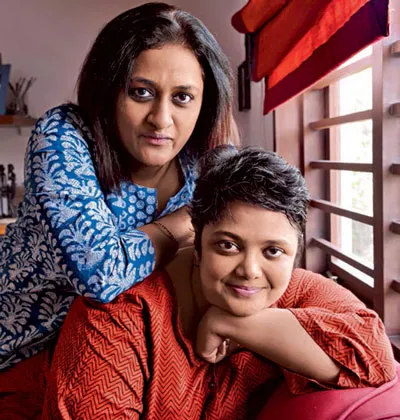
It started in 1993, when Vandana Gopikumar saw a mentally ill woman on the roads of Chennai. Moved by the episode, she and her friend Vaishnavi Jayakumar founded The Banyan, a home for mentally ill, destitute women. To date, The Banyan has rescued and rehabilitated about 10,000 women, and has become one of the largest mental healthcare organisations in India.
Banyan focuses on a person-centric and inclusive approach that aims at social justice and equity. Over three decades, Vandana and Vaishnavi have studied the link between homelessness, mental sickness, poverty, and the resulting distress.
Through this understanding, they have developed a range of innovative solutions for resource-poor settings, including short and long-term services like rescue, care, rehabilitation, vocational training, legal aid, and reintegration.
They are present across five districts in Tamil Nadu and one block in Maharashtra, through 15 service access points.
In 2012, Vandana Gopikumar was the recipient of the 'Outstanding achievement in the field of mental health care' award given by the Swiss Foundation, in collaboration with the WHO.
The Banyan’s five major projects include: Adaikalam, a transit care centre for women rescued from the streets, the community mental health project, the community living project for patients needing long-term care, BALM (Banyan Academy of Excellence in Mental Health) that works in the academic advocacy and research areas, and a shelter for the homeless run in collaboration with Chennai Corporation.
In 2014, the Banyan’s inclusive living options won the Grand Challenges Canada Global Mental Health Grant.
10. Anna Chandy, Chairperson, The Live Love Laugh Foundation (TLLLF)
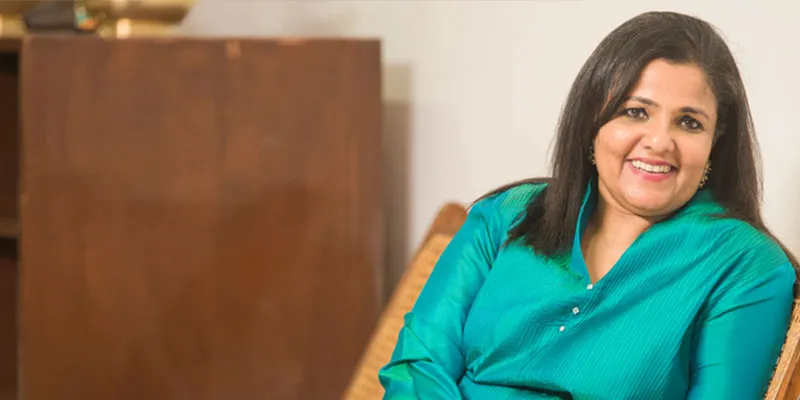
If Deepika Padukone is the public face of TLLLF, Anna, who works behind the scenes, helming the foundation as its chairperson, is the foundation’s heartbeat.
At TLLLF, she oversees the strategic initiatives. In recent months, they launched the DobaraPocho campaign, an initiative to encourage individuals to talk about depression, and also urged friends and family to enquire of their near and dear ones how they were doing.
Another initiative, #YouAreNotAlone School Program, reaches out to schools to fight the stigma of depression and create awareness around the topic. Through TLLLF’s partnership with Facebook, Anna is working to raise awareness about suicide and encourage people to reach out if they see a friend in distress.The ‘Together Against Depression’ programme is reaching out to more than 5,000 general physicians to help them work with patients who may be suffering from depression or anxiety.
Anna’s first brush with mental illness came when her brother-in-law, who was schizophrenic, came home to visit. This led her to the path of counselling. She started her career at Vishwas, a non-profit organisation, and went on to become the first certified transactional analyst (TA) in Asia accredited by the International Transactional Analysis Association, with a specialisation in counselling.
In a career that has spanned 20 years, she has been involved in development work, counselling, coaching, and mentoring. Anna is also certified in Neuro Linguistic Programming and Art Therapy. In addition to her private practice, she also consults with various organisations.







